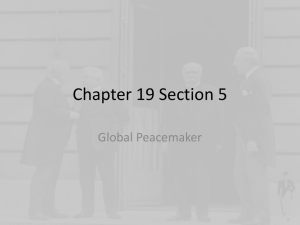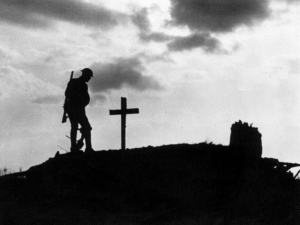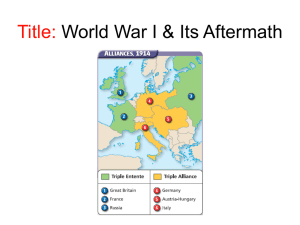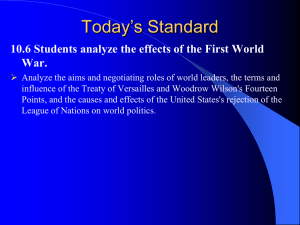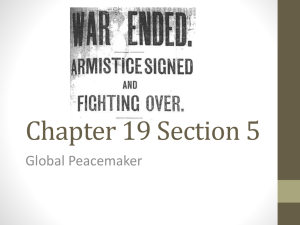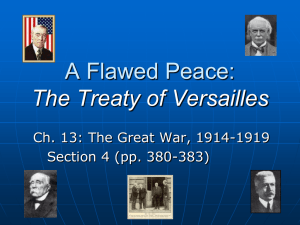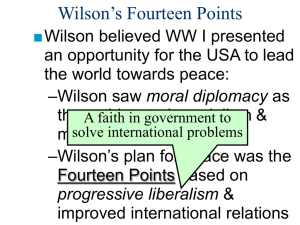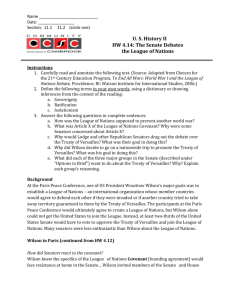US and the Battle to Ratify the Treaty of Versailles
advertisement
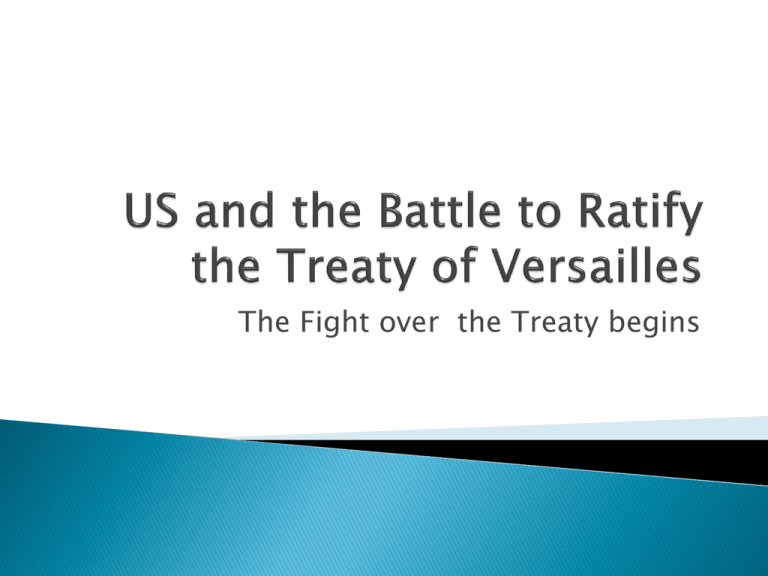
The Fight over the Treaty begins When Wilson returned home from France his political mistakes became apparent: a) When he had picked members of the American Peace Commissioners he left off Republicans and Senators b) Republicans controlled the Senate and the Senate would have to vote to approve any peace treaty by a 2/3 majority. Wilson could not see why anyone would not approve the treaty. Republican senators raised objections to the League, arguing that US membership would interfere with US sovereignty. They were also afraid that it would violate the Monroe Doctrine and allow European nations to intervene in affairs of the Americas. Article X (10) of the covenant of the League said member nations would have to protect the independence and territorial integrity of other nations. This meant that an attack on one nation could mean the others would have to fight. This concept was contrary to the US tradition of staying out of “entangling alliances”. Wilson refused to compromise on Article X which proved to be a foolish move. Wilson was partly to blame for his trouble in winning the Senate ratification. He made the mistake of asking the American people to be patriotic and vote Democrat in the midterm elections. Republicans won a solid majority in the House and a majority of two in the Senate. Now in 1919 Wilson needed Republican cooperation in the Senate for the Treaty of Versailles to be ratified. Senators opposed to the Treaty of Versailles were divided into two groups and were led by two Republican Senators with different agendas: The irreconcilable faction, consisting of about a dozen Republican senators, could not accept membership in the League no matter how the covenant was worded. This was led by William E Borah, he believed the US should stay independent and act in its own best interests. He opposed the League because it would take away US independence. The reservationist faction was led by Henry Cabot Lodge. The reservationists said they could accept the League if certain reservations were added to the League. Lodge controlled the Committee that recommended treaties for a Senate vote. He was a close friend of Teddy Roosevelt, he hated Wilson and did not like the League. Wilson believed his policy could prevail if he could personally rally public support. He boarded a train and went on an arduous speaking tour to the West to make speeches for the League of Nations. This proved to be a big mistake, as he collapsed on Sept 25th 1919 after delivering a speech in Colorado. Wilson returned to Washington and a few days later suffered a massive stroke from which he never recovered. He spent the next 8 months in bed. His wife carried messages for him and to him but she may have edited some she did not like. (Woman President?) Wilson made another mistake when he made the 1920 election a “solemn national referendum” on the League. The Senate voted twice on the Treaty question in November 1919. The treaty was defeated both times, with and without reservations. Wilson might have been able to set up a compromise with Lodge if he had tried. In 1920, a number of Democrats joined the reservationist Republicans in voting for the Treaty with reservations. The ailing Wilson directed his loyal supporters to reject any reservations and they joined with the irreconcilables in defeating the Treaty. Warren Harding the Republican defeated James Cox the Democrat easily. The American people had chosen to stay out of the league. Public interest in the peace process fadedpartly as a reaction to the tragic bitterness of the ratification fight, but more in a response to a series of other crises. It was not until after Wilson left office in 1921 did the US make a separate peace with Germany. It never ratified the Treaty of Versailles nor did it ever join the League of Nations. How did the peace treaty fail? To what extent were Woodrow Wilson’s illness and his refusal to compromise responsible for the defeat of the Treaty of Versailles in the US Senate?

